As we’ve travelled through Asia and Europe for two years, we’ve learnt a lot. I think that some of it can probably be called general life lessons whereas other things are more pertinent to travelling. Here they are, a mix of our thoughts and travel tips…
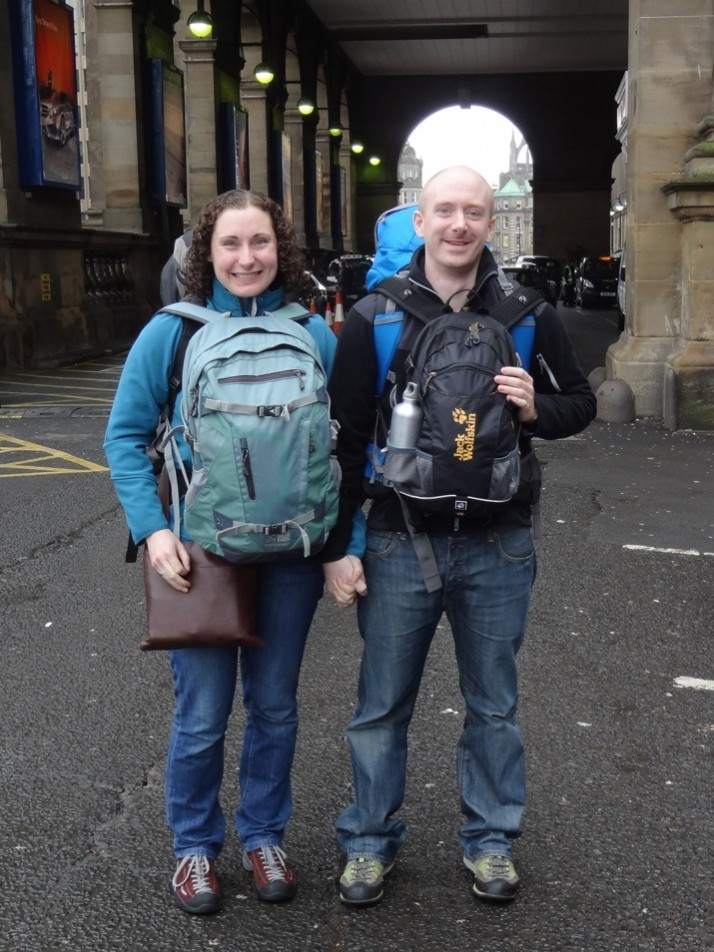 Ready to board our first train at Newcastle Station, excited about what the next two years would bring
Ready to board our first train at Newcastle Station, excited about what the next two years would bring
- Having a guidebook to the country you’re visiting is really helpful. Of course all of the information is available online somewhere, but to get an overview of a place and its layout the guidebook is a good shortcut. We’ve also found that we prefer a paper guidebook rather than the ebook version as it’s easier to flip between maps and attraction information. Accommodation and restaurants are the exception, for the former we look online (TripAdvisor or the reviews on booking sites), for places to eat we just follow our noses!
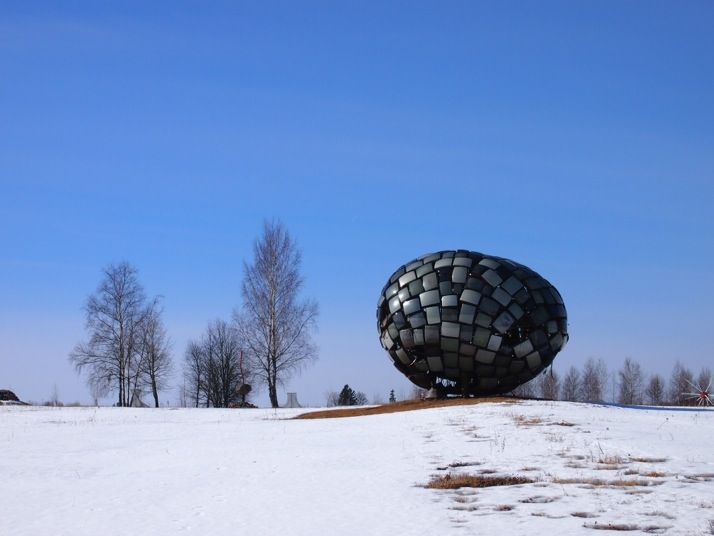 Without our Lonely Planet guide we might never have found out about the open air Pedvale Sculpture Park in Sabile, Latvia
Without our Lonely Planet guide we might never have found out about the open air Pedvale Sculpture Park in Sabile, Latvia - Walking a city is the best way to get your bearings and get a feel for distances between landmarks as well as being a good way to spot places to eat or drink.
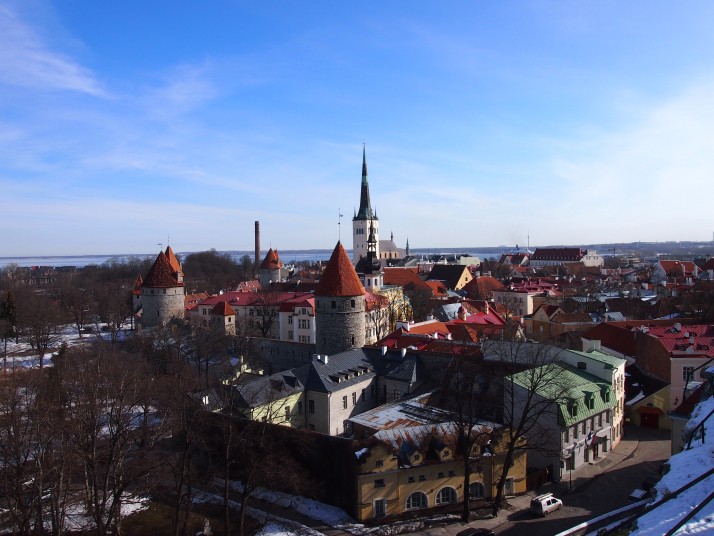 Getting an overview of Tallinn’s old town from the city walls
Getting an overview of Tallinn’s old town from the city walls - We thought giving up our jobs to go travelling for two years was pretty adventurous but we were constantly meeting people far more adventurous than us, from the German vet who arrived in Mongolia, bought a horse and just set off, to the Japanese man who after travelling for a while bought himself a bike in Bishkek, Krgyzstan to continue his journey to Scotland by pedal power.
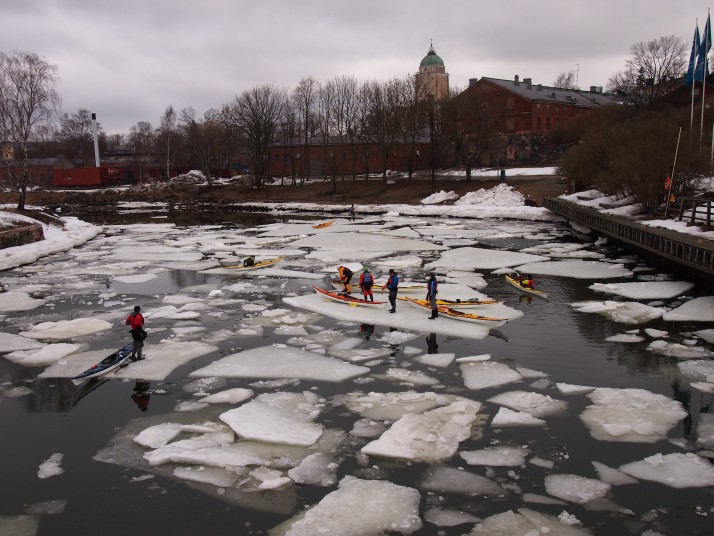 We’re nowhere near adventurous (crazy?) enough to go canoeing in the icy sea like this group that we saw at Suomenlinna in Helsinki
We’re nowhere near adventurous (crazy?) enough to go canoeing in the icy sea like this group that we saw at Suomenlinna in Helsinki - It’s quite possible to have an hour long “conversation” with someone even if you don’t have a shared language. Tourist charades, odd words, photos and even drawing pictures help a lot. If a random stranger tries to strike up a conversation with you in a language you don’t understand, the most likely correct answer to their first question is England (or whatever your country of origin might be). It’s really helpful to learn it in the local lingo – in Russian it’s Anglia.
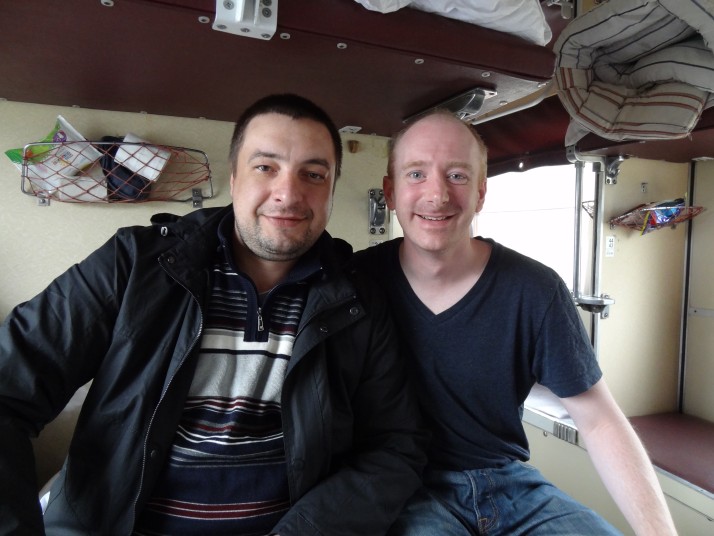 Andrew with Vasily on the train from Krasnoyarsk to Severobaikalsk. Despite only having about ten common words in a mixture of English, Russian and German they found out quite a bit about each other.
Andrew with Vasily on the train from Krasnoyarsk to Severobaikalsk. Despite only having about ten common words in a mixture of English, Russian and German they found out quite a bit about each other. - Carry a ziploc bag of toilet roll in your daypack. You might carry it for ages without ever needing it but when you do you’ll be glad.
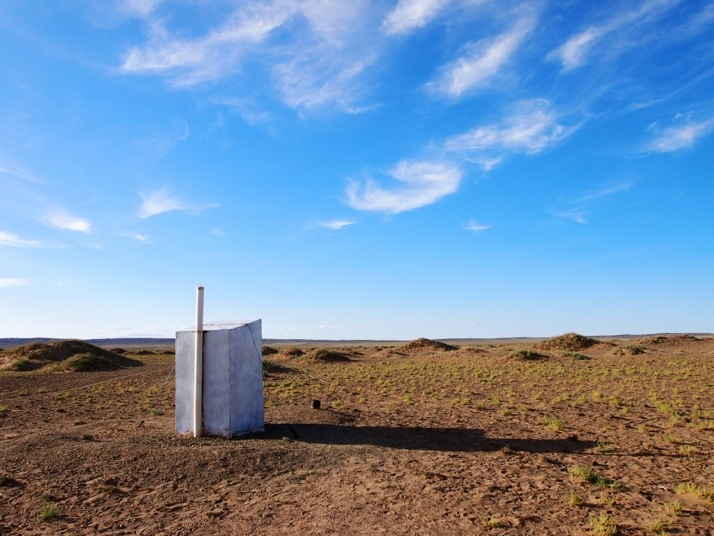 Mongolian toilets are not the most luxurious that we’ve encountered during the two years but they do have the best views
Mongolian toilets are not the most luxurious that we’ve encountered during the two years but they do have the best views - It’s pretty easy to find familiar brand names everywhere you go – Coca Cola is omnipresent, and Starbucks and McDonald’s almost so. I was surprised how easy it was to find our usual brands of toiletries – Pantene shampoos, Sure deodrant, Colgate toothpaste, etc. Of course the packaging is in a different language but I found the familiar styling to be reassuring. The only place we struggled was in Japan where anti-perspirant seemingly doesn’t exist.
 Sure it’s in Chinese, but you know that it’s Sprite don’t you?
Sure it’s in Chinese, but you know that it’s Sprite don’t you? - It’s surprisingly easy not to buy stuff (clothes, souvenirs, “wow that’s cool” things) when you know you’ll have to carry them for months and months. It’s a bit like being on a diet, less willpower is required for a blanket ‘no’ than for limiting your intake. It’ll be strange to readjust to buying things again but we’ve both come to appreciate how little “stuff” we actually need.
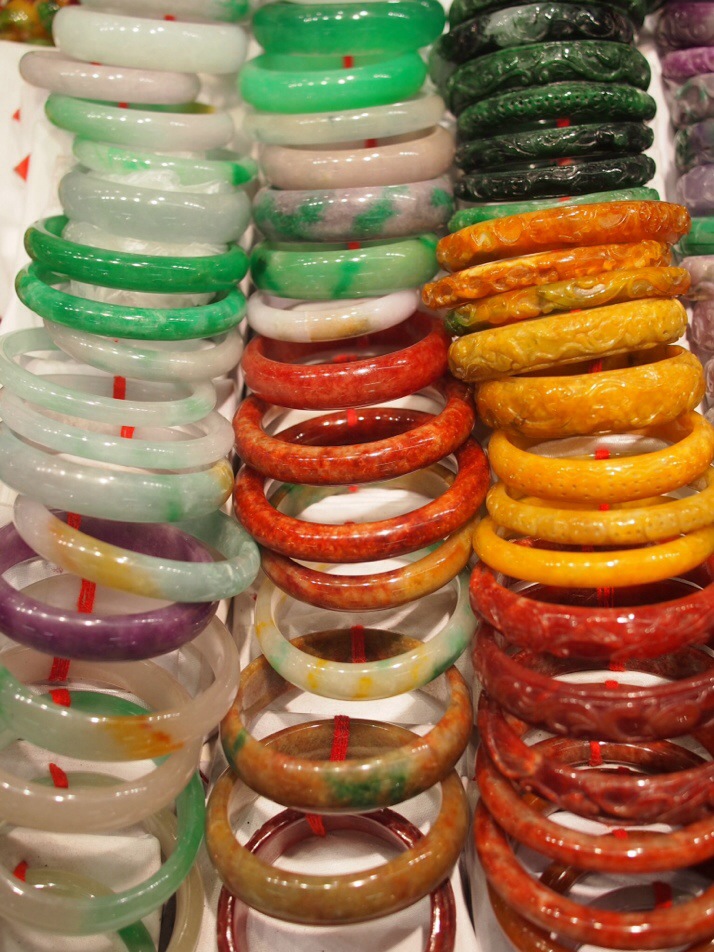 I was very tempted at the jade market in Hong Kong, but managed to resist the urge and left with only a photo
I was very tempted at the jade market in Hong Kong, but managed to resist the urge and left with only a photo - Smile at people. The response you get will definitely vary according to cultural differences but it will always be positive.
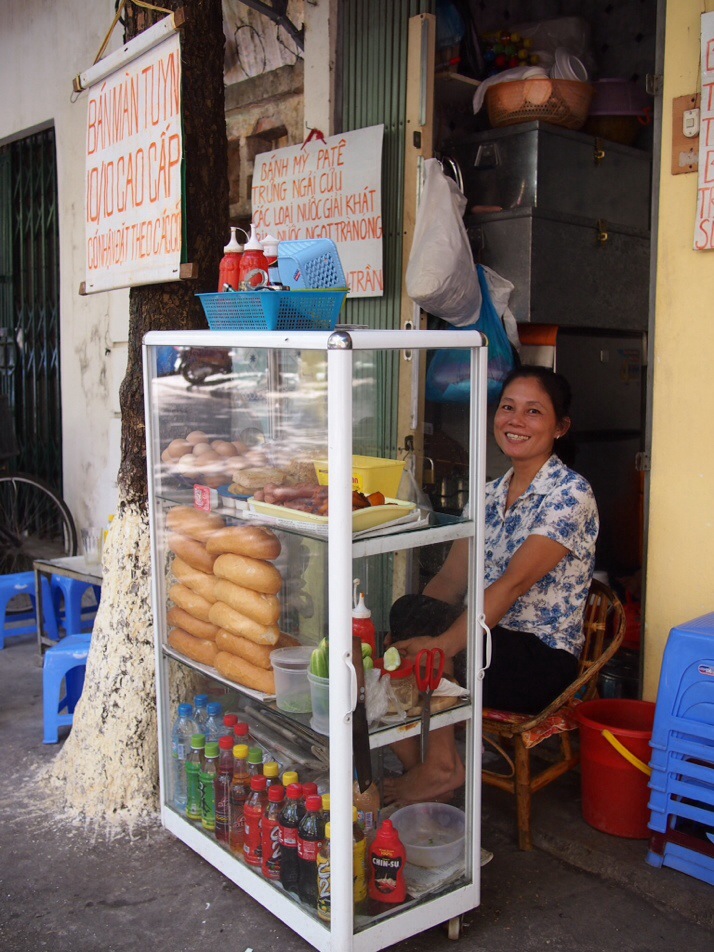 Vietnamese street food vendor, we got some of the broadest return smiles here.
Vietnamese street food vendor, we got some of the broadest return smiles here. - Waterproof the contents of your bag, we learnt this the hard way on a boat trip in Cambodia. Although a lot of our stuff was in plastic bags or didn’t suffer from getting wet we lost a couple of books and about half of our med kit.
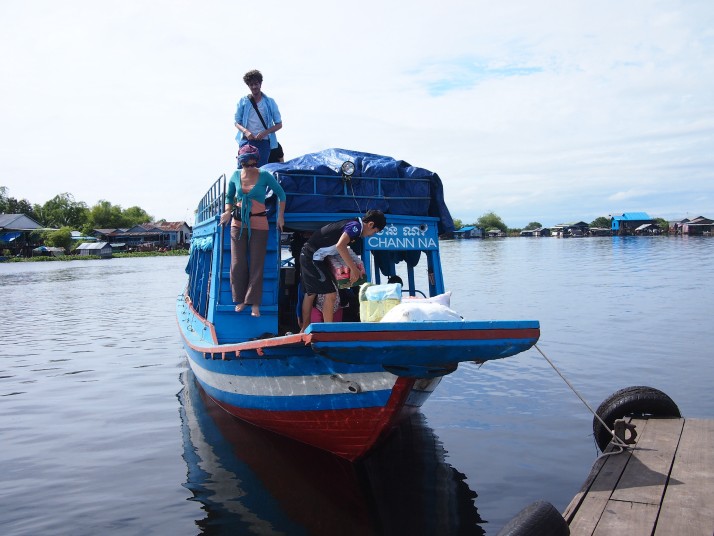 Our boat from Battambang to Siem Riep in Cambodia before the rain clouds rolled in
Our boat from Battambang to Siem Riep in Cambodia before the rain clouds rolled in - Carefully chosen tours are worth the money. Although we generally prefer the flexibility of travelling independently there are some things that can’t be done alone or are well worth doing as part of a tour. Good examples are getting out into the countryside in Mongolia, a street food tour in Hanoi, visiting the DMZ in South Korea, and seeing the remains of the Aral Sea in Uzbekistan.
 It was expensive, but one of the most memorable days of the trip was our day as elephant owners in Chiang Mai
It was expensive, but one of the most memorable days of the trip was our day as elephant owners in Chiang Mai - We’re pretty relaxed about where and what we eat believing that a large part of the joy of the trip comes from the food. We’ll eat street food, ice and salad as long as we follow the rules – are locals eating there, is there a fast turnover of food, is it freshly cooked.
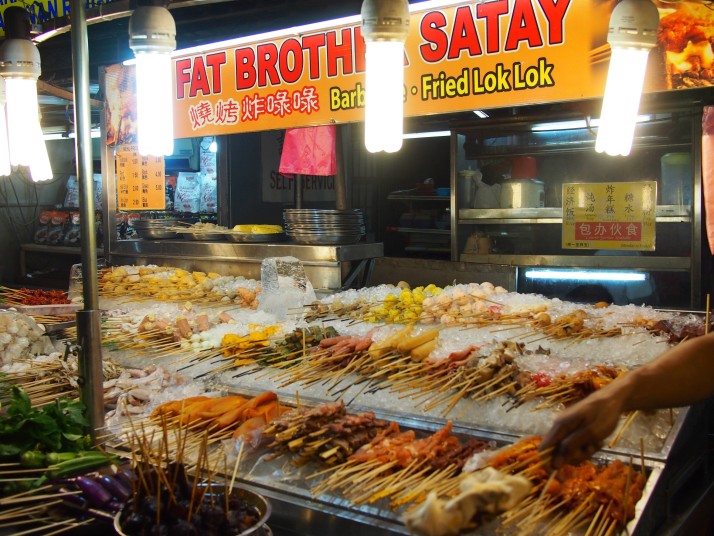 A vast array of satay skewers to choose from at a street stall in Kuala Lumpur
A vast array of satay skewers to choose from at a street stall in Kuala Lumpur - People are essentially the same all over the world. Their priorities are just like yours – they love their family, they want to earn a living, and they’re curious about why foreigners are in their neighbourhood.
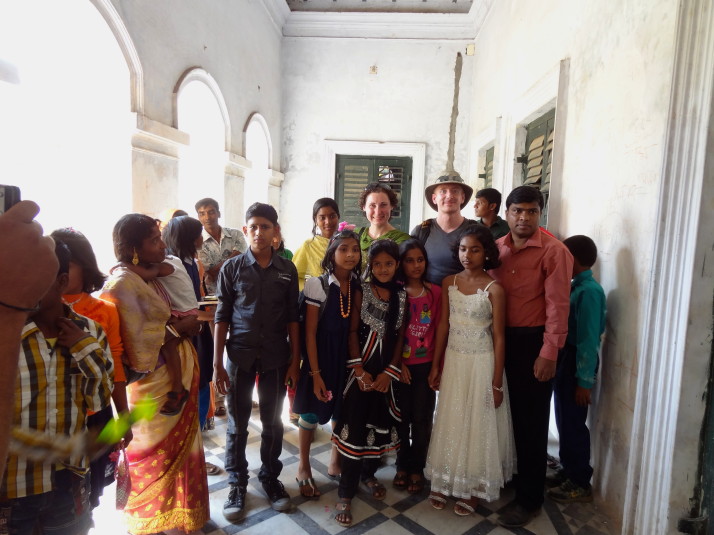 That said, Bangladeshis definitely win the prize for most curious nation!
That said, Bangladeshis definitely win the prize for most curious nation! - With that in mind, there’s no need to expect that everyone you meet wants to mug you. Sure you need to be aware of your surroundings and take sensible precautions (like padlocking your valuables inside a bag when you’re out of your hotel room) but there’s no need to be obsessive, for example we don’t wear money belts.
- I used to be surprised by how many people chose their own bed as their luxury on the radio programme Desert Island Discs. That was before we slept in 199 over the course of two years and realised how crucial a comfortable bed and especially pillows can be in getting a decent night’s sleep and not waking up as twisted as a windswept tree.
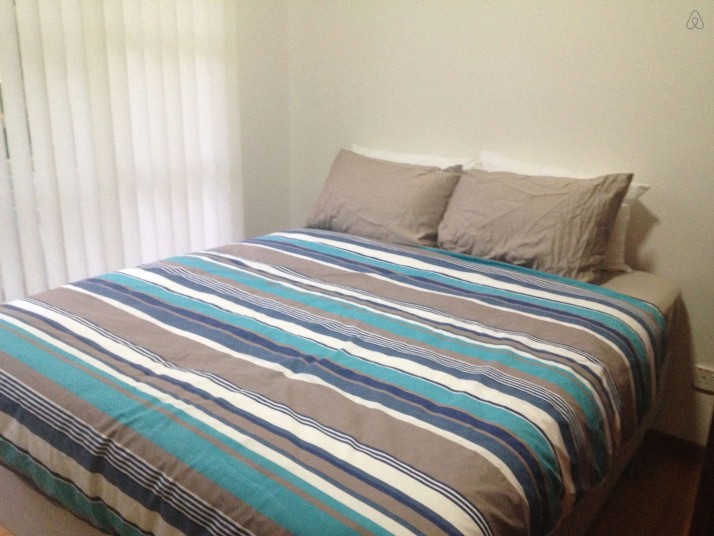 The blissfully comfortable bed that we found in our Airbnb room in Singapore, especially good after some uncomfortable nights in Bangladesh [photo credit: our host Diana, via Airbnb]
The blissfully comfortable bed that we found in our Airbnb room in Singapore, especially good after some uncomfortable nights in Bangladesh [photo credit: our host Diana, via Airbnb] - History is much more interesting when you’re learning it where it happened rather than from a book, and it’s fascinating to see a different side of the story, e.g. Vietnam in what they know as the American War, Russia’s losses in WWII (the Great Patriotic War), and the consequences of the dropping of atomic bombs on Hiroshima and Nagasaki in Japan.
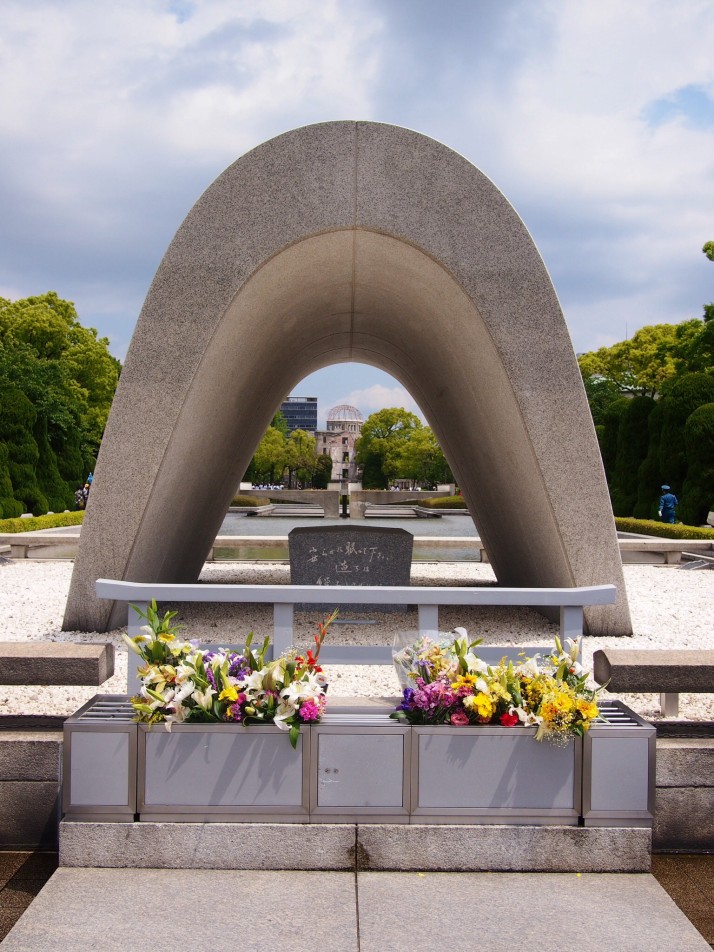 The humbling peace memorial at Hiroshima in Japan
The humbling peace memorial at Hiroshima in Japan - I love the adrenaline rush that I get on the first day in a new country – the assault on the senses of what is different, listening to the rhythms of a new language and trying to figure out how things work.
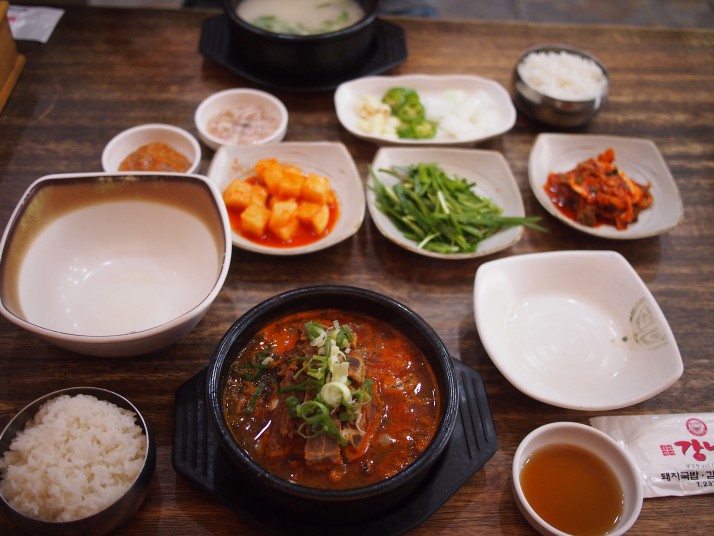 One of our first meals in Busan, South Korea; completely different to anything we’d had before, especially all those kimchi side dishes
One of our first meals in Busan, South Korea; completely different to anything we’d had before, especially all those kimchi side dishes - Flights account for huge chunks of budget and we’ve enjoyed travelling overland wherever possible. Taking overnight trains is a great experience and saves on the price of a hotel while getting you from A to B.
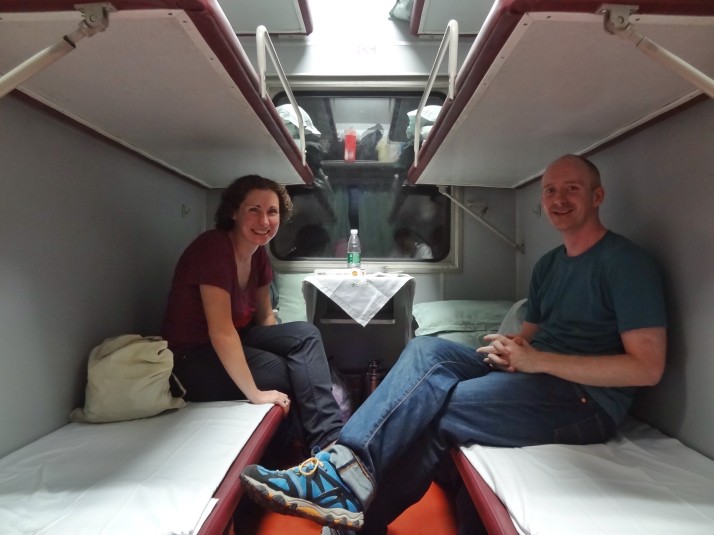 Settling in on a sleeper train in China
Settling in on a sleeper train in China - Practice your mental arithmetic. Finding a simple way of converting to your home currency prevents nasty surprises later when working out how much something cost.
The awards for most ridiculous currency: Vietnam had the most obscence exchange rate with £1 = 33,000 dong, but for sheer unusability the Uzbekistan som with £1 = 5000 som and the most common banknote at 1000 som, meant that we had to pay for everything with notes worth 20p and needed to carry a hefty bundle to cover the day’s expenses.
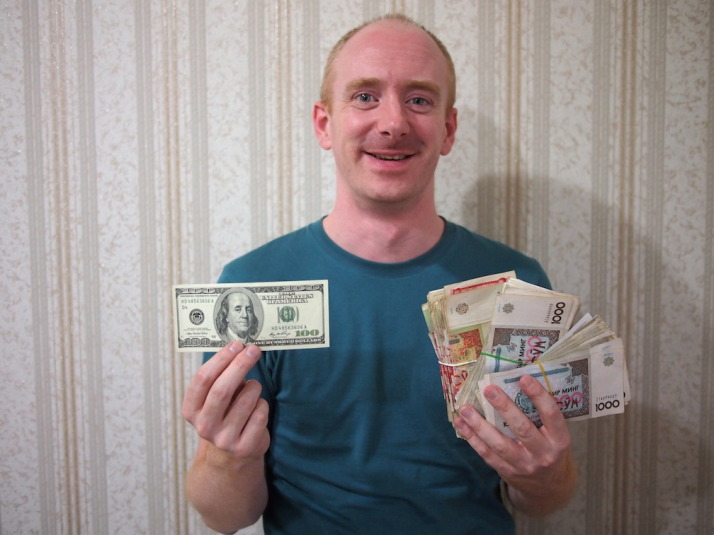 Andrew with the equivalent of $100 (~£60) in Uzbek som!
Andrew with the equivalent of $100 (~£60) in Uzbek som! - A sarong is a surprisingly versatile piece of kit. Mine has only rarely been used as a sarong but it has served time as a scarf, pillow, blanket, seat cover, headscarf, hot water bottle cover…
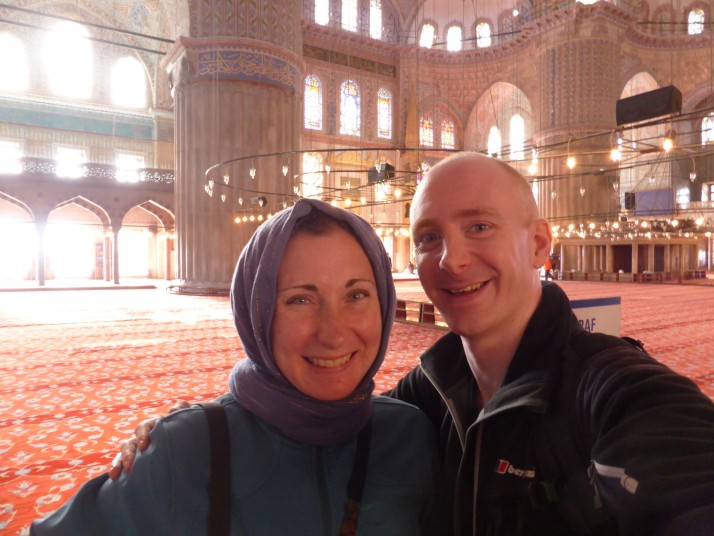 Wearing the sarong as a headscarf while visiting the Blue Mosque in Istanbul
Wearing the sarong as a headscarf while visiting the Blue Mosque in Istanbul - Write a blog or keep a journal. We love reading back through our posts and reminiscing about where we’ve been, what we did and who we met.
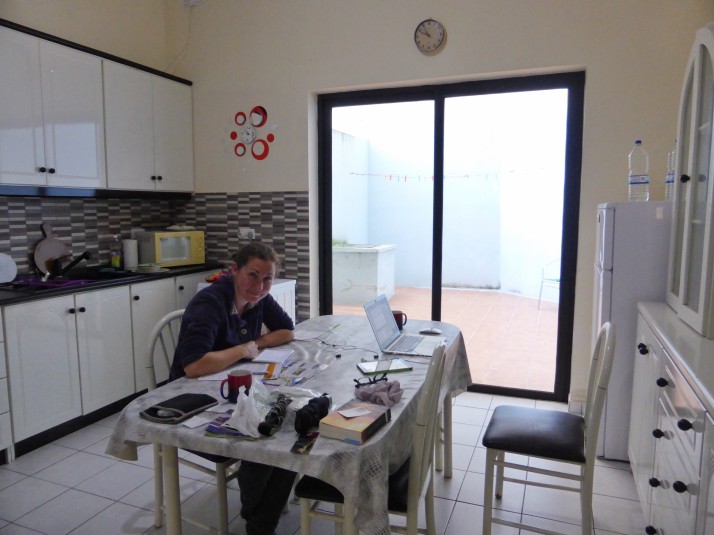 Julie at the kitchen table of our apartment in Malta on a blogging day – leaflets, guidebooks and plenty of coffee at the ready
Julie at the kitchen table of our apartment in Malta on a blogging day – leaflets, guidebooks and plenty of coffee at the ready - If you’re on a budget, keep track of your expenses. Every day. We use a notebook to jot things down during the day and then enter it into a spreadsheet each evening. It doesn’t take long but it gives us a sense of whether or not we’re on track before things get out of control.
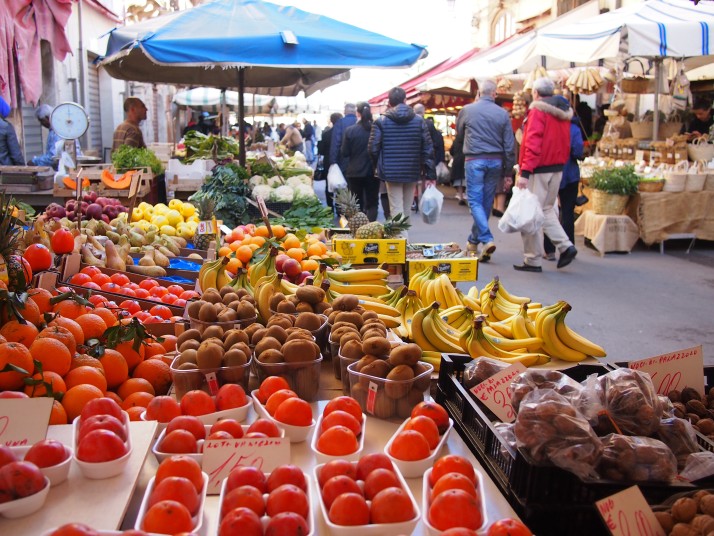 Market in Siracusa, Sicily. It’s especially important to keep a note of spending in markets where lots of purchases and few receipts are the order of the day.
Market in Siracusa, Sicily. It’s especially important to keep a note of spending in markets where lots of purchases and few receipts are the order of the day. - Not having a postal address isn’t easy, banks don’t like it for a start. Many thanks to our parents for being our post offices.
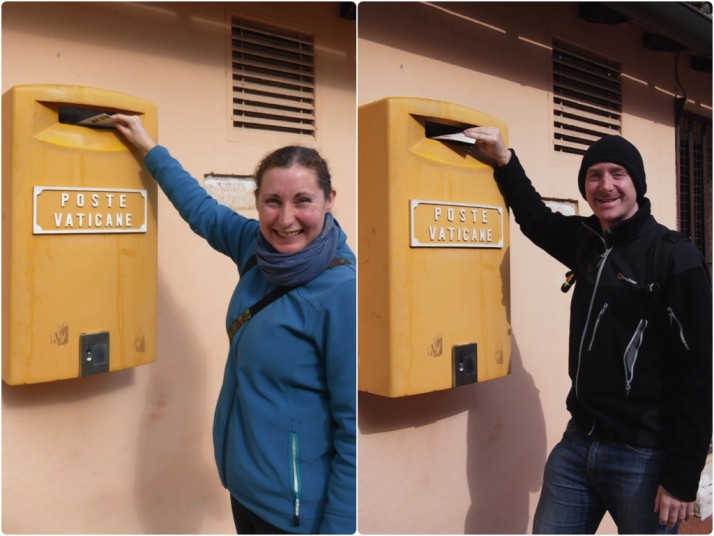 Us sending postcards from the roof of St. Peter’s Basilica in the Vatican City!
Us sending postcards from the roof of St. Peter’s Basilica in the Vatican City! - Kit is important but it’s not at all important to have everything new. My 12 year old rucksack has functioned perfectly well and while I have occasionally been envious of the front opening zip panel on Andrew’s it is only slightly more effort to unpack.
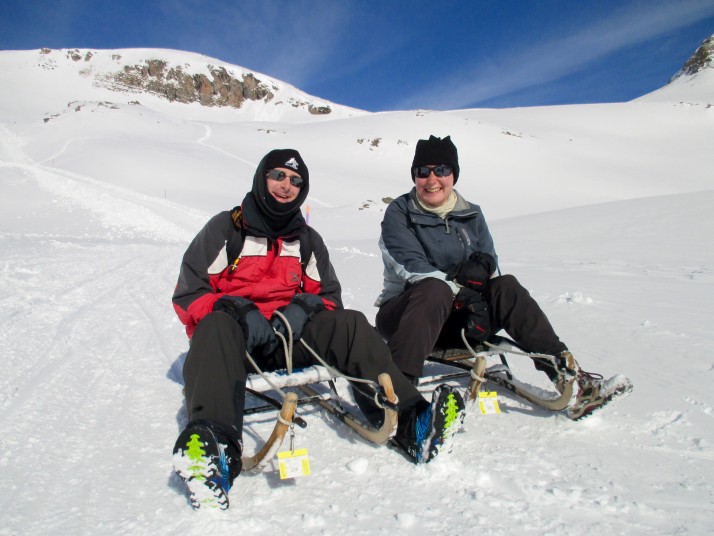 In borrowed salopettes and ski jackets in Switzerland (thanks Heidi and Olivier for letting us raid your wardrobe!)
In borrowed salopettes and ski jackets in Switzerland (thanks Heidi and Olivier for letting us raid your wardrobe!) - It’s very easy to be lazy if you speak English. There’s no need to be afraid to travel because you don’t speak the language. It’s nice to learn a few words of the local language – hello, thank you and numbers should be at the top of your list – but it’s quite possible to get by with a combination of English and tourist charades. Remember, if you want to eat or buy something, the vendor wants to sell you something – you both want it to work.
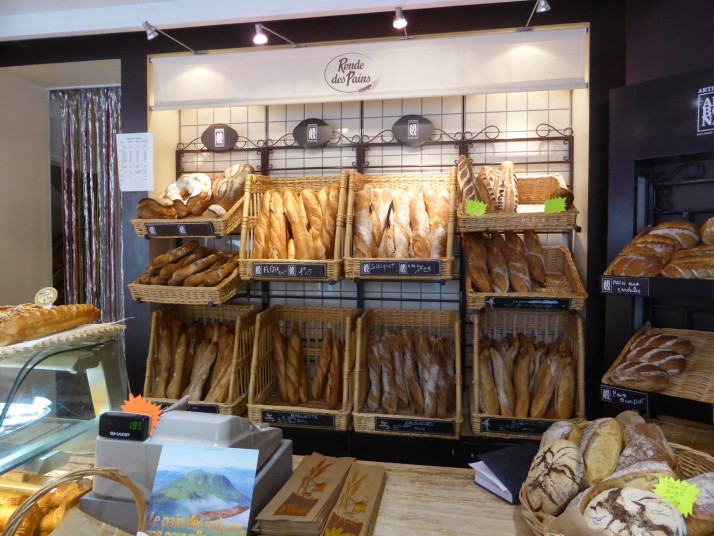 Different kinds of baguettes in a French bakery. We were surprised how quickly the French we learned in school came back to us.
Different kinds of baguettes in a French bakery. We were surprised how quickly the French we learned in school came back to us. - Know that on arrival in a new country you will reflexively say thank you in the previous country’s language for several days while you reprogram yourself. It is shocking how quickly we forgot even the few basic phrases we learned.
- The more we travel, the longer the list of places we’d like to visit gets!
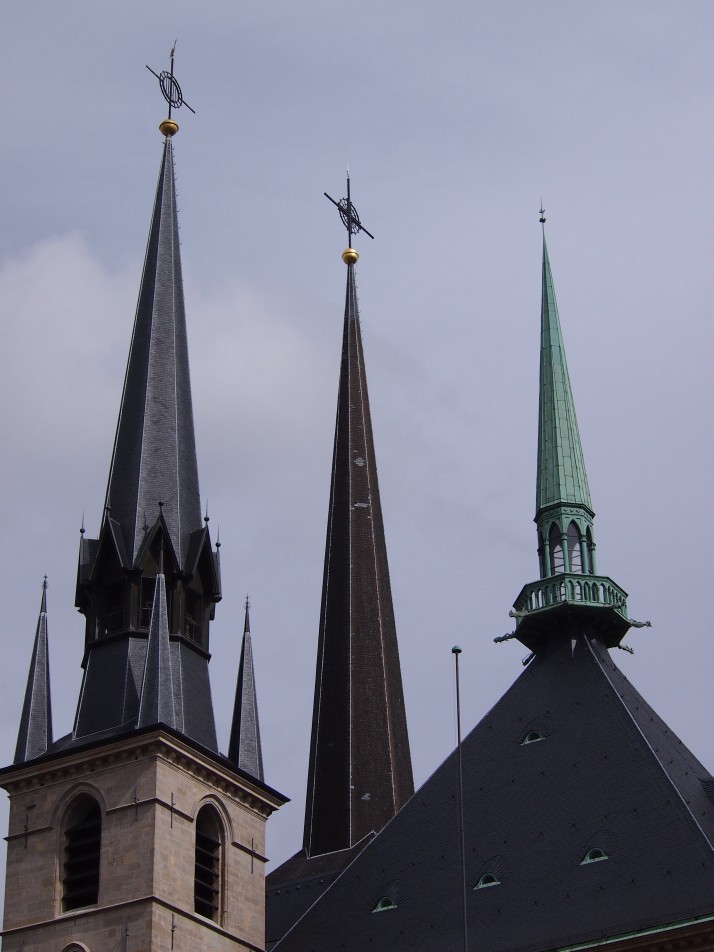 Cathedral spires on Luxembourg City’s cathedral. A late addition to our list of stops.
Cathedral spires on Luxembourg City’s cathedral. A late addition to our list of stops. - We’ve become very confident when crossing the street. In many countries pedestrians do not automatically have right of way, even on a zebra crossing with a green man. Checking the opposite direction is a good idea too as motorbikes and bicycles generally ignore even the scant road rules.
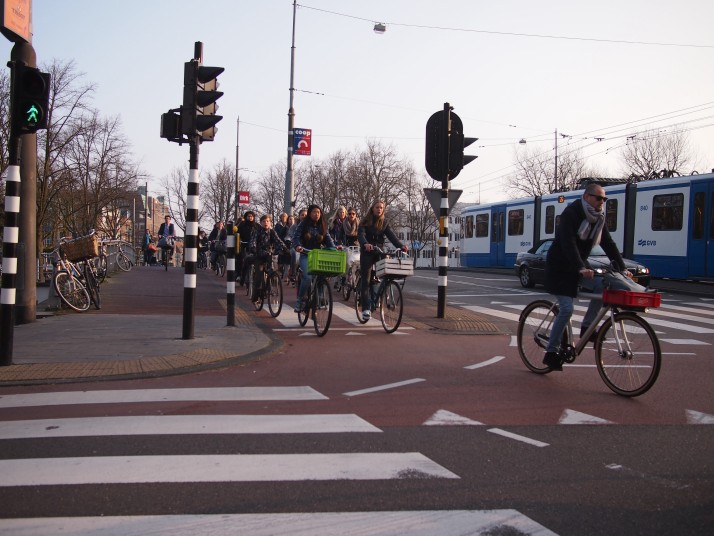 Crossing the road in Amsterdam requires you to be aware of bicycles and silent electric trams as well as cars
Crossing the road in Amsterdam requires you to be aware of bicycles and silent electric trams as well as cars - Adopt a football team. When we told people that we were from Newcastle we often got a response of “Newcastle United – Alan Shearer!”
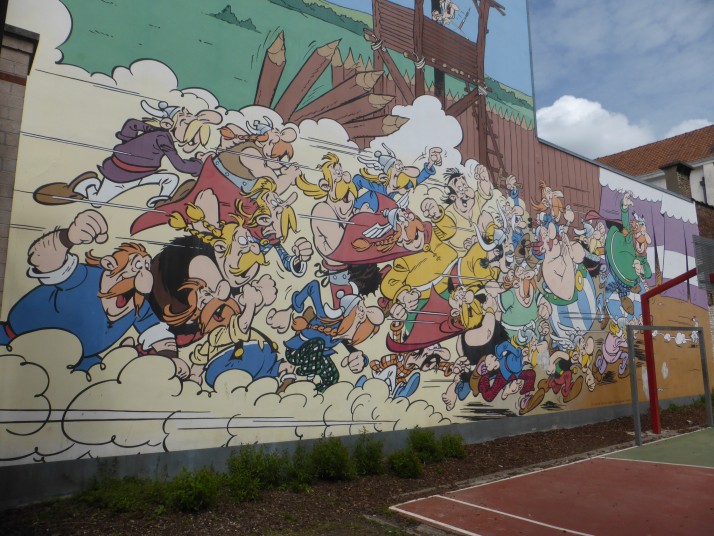 Asterix and friends chasing after a mouse, not a football, on a comic strip wall in Brussels
Asterix and friends chasing after a mouse, not a football, on a comic strip wall in Brussels
 On the platform at St Pancras station in London. We’re home – old and wiser perhaps, but not looking too different to the day we departed.
On the platform at St Pancras station in London. We’re home – old and wiser perhaps, but not looking too different to the day we departed.

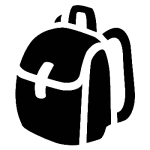 two year trip
two year trip
I think from travelling with you a bit the smiling and talking to people is the most important lesson that others could take away – you got so much out of being friendly and willing to chat to people. I remember that French conversation I had on the bus on the way into Samarkand, for instance; it was really good to have a proper chat with someone.
Yes, we sometimes had to remind ourselves about slowing down and being open to talking with people but it led to some the most memorable bits of the trip, and I agree that you get a totally different perspective if you’re able to chat with ‘normal’ people.